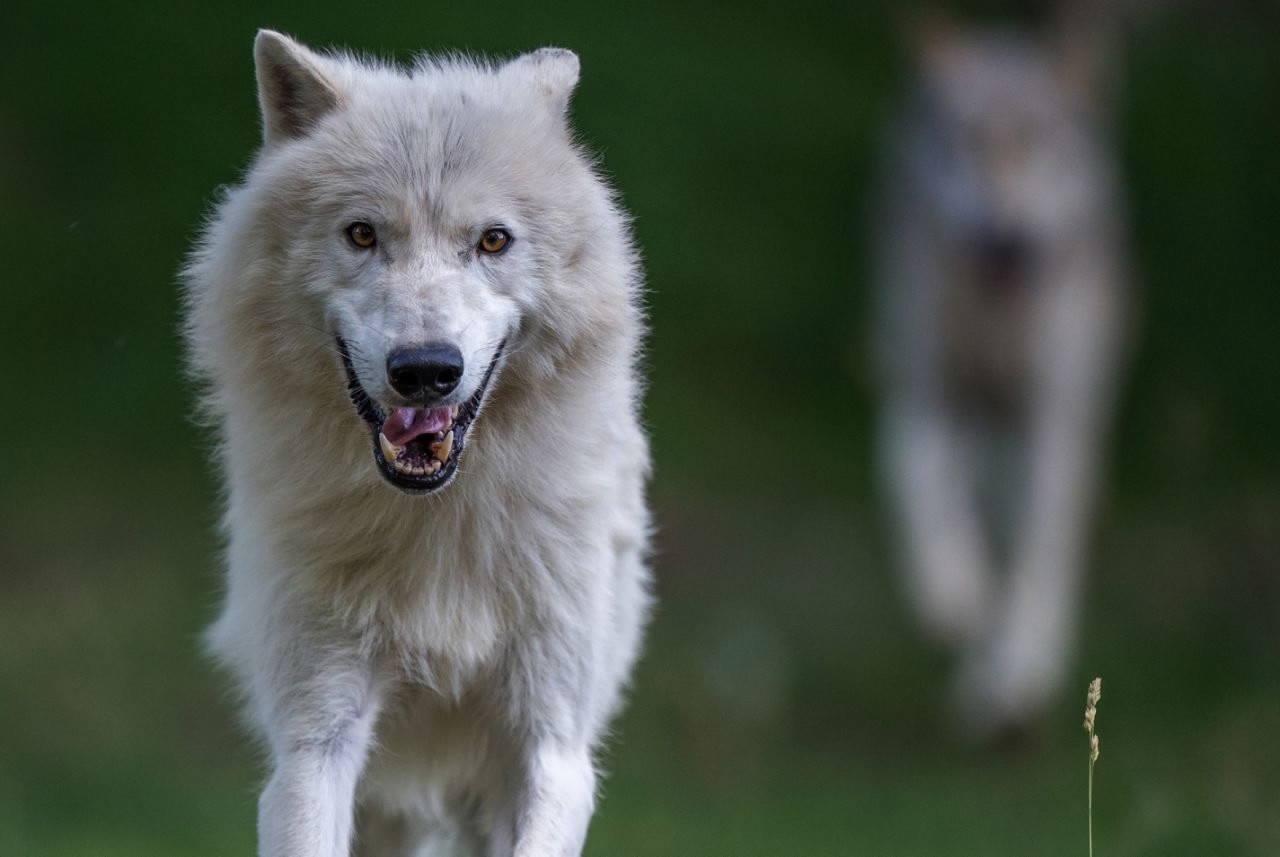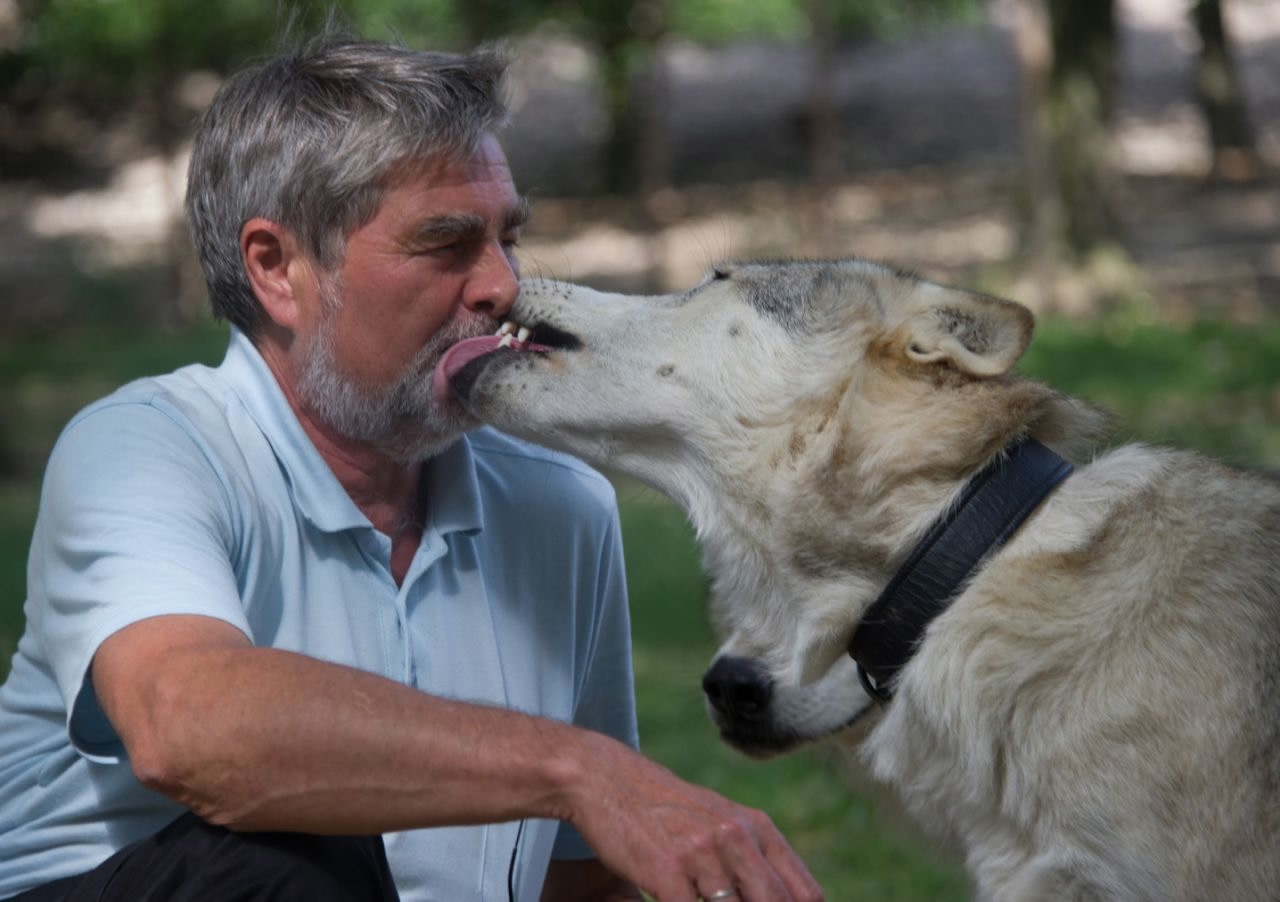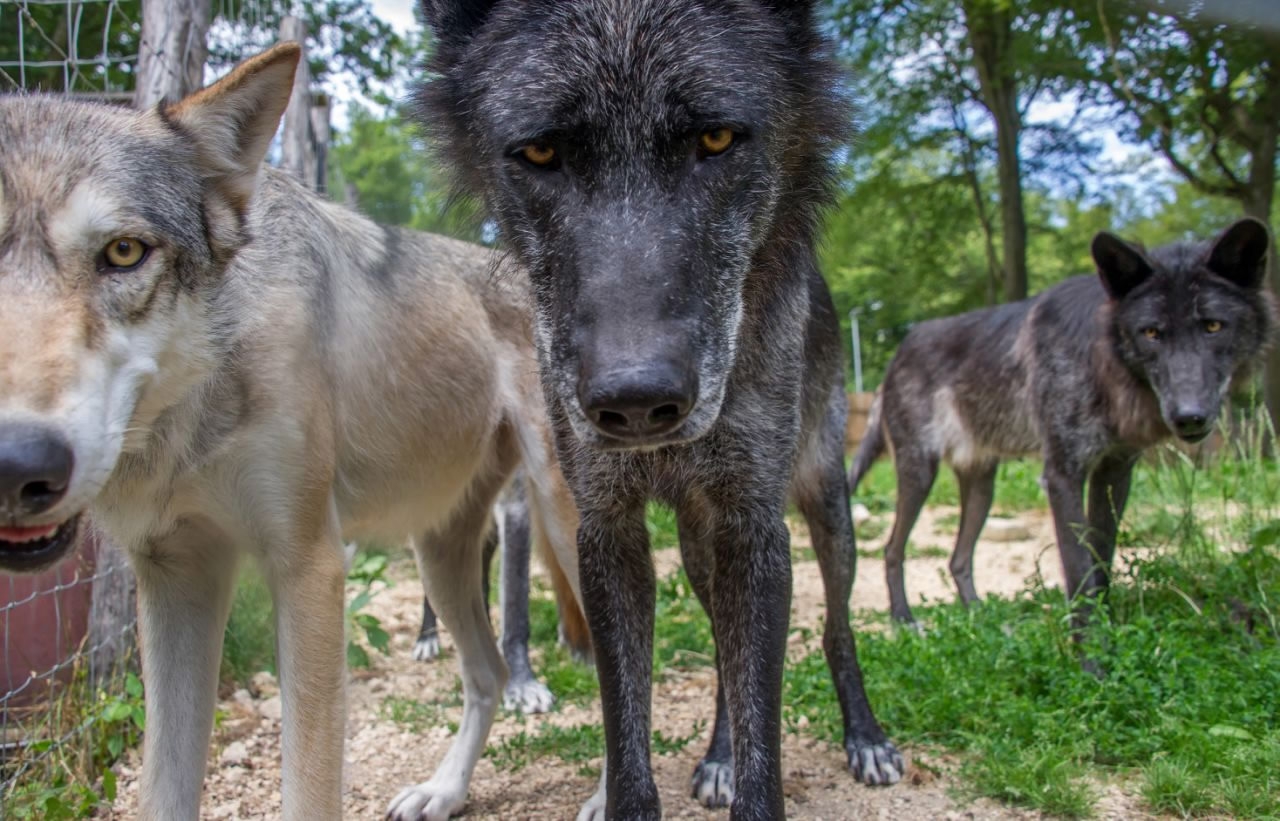
Tech & Sci
16:48, 28-Aug-2017
Executives sharpen their senses in one-day course with wolves
With inputs from AFP

The Wolf Science Center, located north of Vienna, is offering a unique course to executives hoping to sharpen their skills: a face-to-face interaction with wolves.
"When they lick your face, keep your mouth closed. They have long tongues," Kurt Kotrschal tells the group before they enter the wolf enclosure, soliciting a few nervous chuckles.
But for the participants in this unusual executive coaching course in Austria, there are more worrying parts of the animals' anatomy. Their teeth, for example.
Eyeing the group with curiosity -- or is it hunger? -- are Nanuk and Una, two timber wolves reaching easily to waist height.
Everything about them is big, from their paws to their heads to their mouths.
"I'm a bit apprehensive," confides one participant.
Like every time, the encounter between the furry predators and the half-dozen humans passes off peacefully.
The people pet the wolves -- "Not the head," warns the keepers -- and get sniffed back in return.

The Wolf Science Center north of Vienna compares the behavior of wolves and dogs. /AFP Photo
The Wolf Science Center north of Vienna compares the behavior of wolves and dogs. /AFP Photo
Co-founded by Kotrschal, the center is home to 17 timber wolves from North America, Russia and Europe hand-reared from the age of 10 days to get them used to humans -- although tame they are not.
The center's main purpose is to compare and contrast the behavior and smartness of wolves and dogs, but also hosts training courses.
Also here, enthusiastically bounding around with wagging tails in separate enclosures, are 13 dogs from animal shelters brought up the same way.
What big paws you have
But today it's about teaching a different kind of mammal with a big bite -- business executives and senior managers -- to learn from these awe-inspiring animals.
The aim is to give people an exploration of what it means to develop "leadership presence", to develop one's "animal self" and to "communicate on a primal level", said Ian McGarry, co-creator of the "Talking with Wolves" program.
"It doesn't matter who you are -- you can be the CEO of an organization, you could be the janitor. The wolf really doesn't care," McGarry, a British psychologist, told reporters.
"So when you walk into the wolf enclosure, your position, your status, who you are in your own business world is completely irrelevant," the 50-year-old said.
He's right of course.

Kurt Kotschral, co-founder of Austria's Wolf Science Center, with one of its furry residents. /AFP Photo
Kurt Kotschral, co-founder of Austria's Wolf Science Center, with one of its furry residents. /AFP Photo
Nanuk and Una, a bit docile with the summer heat, couldn't give a hoot as they slink up and check out the intruders -- who include a reporter and a camerawoman -- in their large, leafy pen.
And although everyone is quite safe, being in close quarters with a real-life wolf is not for the faint-hearted.
The participants relax, but not entirely. "Put out your hand," instructs one of the keepers.
The wolves then obediently slap their massive paws -- they are considerably bigger than a dog's -- onto the waiting palms.
'Sensing your body'
The one-day course, which costs 650 euros (760 US dollars) per person, also involves group discussion sessions on "being present", as well as seeing and listening exercises before another encounter with three livelier adolescent wolves.
"Take your inner vision onto sensing your body, listen to the sounds that aren't there," McGarry instructs the participants standing in a semi-circle, their arms stretched back.
Bernhard, an international project manager, is impressed, calling the course "totally great".

Being in close quarters with a real-life wolf is not for the faint-hearted. /AFP Photo
Being in close quarters with a real-life wolf is not for the faint-hearted. /AFP Photo
"At least 50 percent of the success of a project depends on the human factor, and that is exactly what we see here," he told reporters.
"When you are going into managing a project you have to be able to read how people are behaving before they talk. Today I sharpened my senses again."
Shirley Smith, a former human resources manager and now a "coach" based in Vienna, said that she overcame her fears -- she is scared of dogs -- to enjoy a "very special" experience.
"The main thing I learned from this workshop is that I'm much stronger than I realized before," she told reporters.
"I felt I was meeting a very powerful creature eye to eye. And if the wolf saw me like that then I recognize that when I want to be, I too can be incredibly powerful."
Executive stress and depression
Tesla CEO Elon Musk tweeted last month about his experience coping with mental health issues.
He responded to a question asked about whether the ups and downs have made his life more enjoyable, saying that "The reality is great highs, terrible lows and unrelenting stress. Don't think people want to hear about the last two.”

Twitter Photo
Twitter Photo
Musk also admitted that he is bipolar, caveating it may not fit under the medical definition of the disorder. He stated that for him, "bad feelings correlate to bad events, so maybe [the] real problem is getting carried away in what I sign up for."
"If you buy a ticket to hell, it isn't fair to blame hell ...” he added at the end, which resonated with many people.
“Anyone with many responsibilities - especially those that impact other people - are certainly at risk for high amounts of stress,” explains Dr. Richard Yep, CEO of the American Counseling Association, to Fortune.
The wolf science center may well serve the purpose of helping CEOs address the stresses of their job.
7444km
Source(s): AFP

SITEMAP
Copyright © 2018 CGTN. Beijing ICP prepared NO.16065310-3
Copyright © 2018 CGTN. Beijing ICP prepared NO.16065310-3